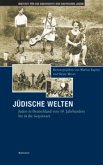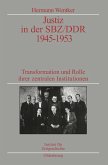This is the story of the reemergence of the Jewish community in Germany after its near total destruction during the Holocaust. In western Germany, the community needed to overcome deep cultural, religious, and political differences before uniting. In eastern Germany, the small Jewish community struggled against communist opposition. After coalescing, both Jewish communities, largely isolated by the international Jewish community, looked to German political leaders and the two German governments for support. Through relationships with key German leaders, they achieved stability by 1953, when West Germany agreed to pay reparations to Israel and to individual Holocaust survivors and East Germany experienced a wave of antisemitic purges. Using archival materials from the Jewish communities of East and West Germany as well as governmental and political party records, Geller elucidates the reestablishment of organized Jewish life in Germany and the Jews' critical ties to political leaders.
Hinweis: Dieser Artikel kann nur an eine deutsche Lieferadresse ausgeliefert werden.
Hinweis: Dieser Artikel kann nur an eine deutsche Lieferadresse ausgeliefert werden.
'His chapters on East Germany add a crucial dimension for understanding why, today, West Germans are credited with dealing with the past, whereas the East German legacy of remembering the plight of Communist resistance has all but disappeared from the public sphere.' The Times Literary Supplement








